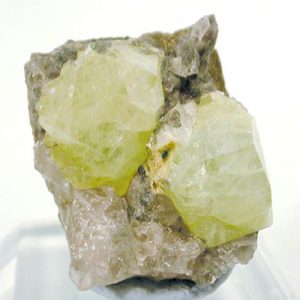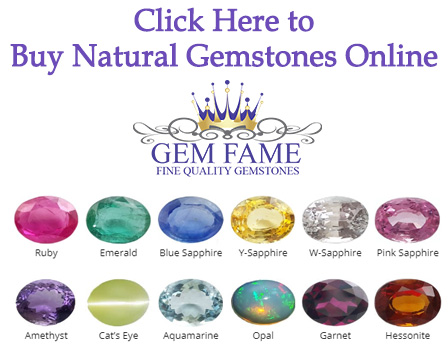Rhodizite
Rhodizite is a very rare gem that is closely related to and is the K (potassium) dominant analogue of Londonite. Londonite is Cs (cesium) dominant. Quantitative chemical analysis is required to differentiate between the two so they are often referred to as Rhodizite-Londonite when specimens have not been chemically tested. Gem quality crystals are available only from Madagascar but are very small and typically heavily included. Other non-gem sources are Russia and the US. Rhodizite is strongly piezoelectric and pyroelectric and is barely radioactive due to its cesium (Cs) content. Rhodizite gems are usually a pale yellow color but are also available as colorless and greenish-yellow. The color of greenish-yellow and yellow gems may fade to colorless with prolonged exposure to sunlight.
| Crystallography: | Isometric – Hextetrahedral |
| Crystal Habit: | Typically as well-formed dodecahedra and tetrahedra, to 3.5 cm, modified by [001] and [111] |
| Twinning: | On [111], uncommon. |
| Cleavage: | [111] Indistinct, [111] Indistinct, [111] Indistinct |
| Fracture: | Conchoidal |
| Tenacity: | Brittle |
| Hardness (Mohs): | 8.0 – 8.5 |
| Density: | 3.22 – 3.44 (g/cm3) |
| Luminescence: | None |
| Radioactivity: | Barely Detectable, GRapi = 52.60 |
| Other: | Piezoelectric and Pyroelectric |
| Color: | Colorless, Grayish, Yellow, Yellowish White, White |
| Transparency: | Transparent, Translucent |
| Luster: | Vitreous to Adamantine |
| Refractive Index: | 1.6935 Isotropic |
| Birefringence: | 0.00 (Isotropic) |
| Dispersion: | Weak; 0.018 |
| Pleochroism: | None |


